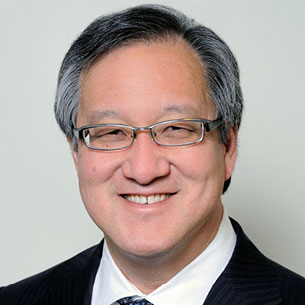 In the United States, we are experiencing truly disruptive changes in the practice of medicine—changes that are by no means limited to our subspecialty. New Year’s Day found me rounding at my community hospital and, perhaps, inclined toward introspection when I began a conversation with one of our general surgeons.
In the United States, we are experiencing truly disruptive changes in the practice of medicine—changes that are by no means limited to our subspecialty. New Year’s Day found me rounding at my community hospital and, perhaps, inclined toward introspection when I began a conversation with one of our general surgeons.
General surgery as a medical profession has been contracting, not only here in the United States, but also globally. Interventional radiology and gastroenterology, the preference among surgeons for specialization such as breast or colorectal surgery, and advances in medical and radiation therapies of cancer have decreased the number of cases for the general surgeon, who is then left covering surgical emergencies and less challenging cases.
My colleague was resigned to this and took solace in the hope that with retirement looming in a few years, he might hold on to the remnants of the professional life he had started his career with. While this might be so for him, what would entice a surgical resident to consider a career in general surgery today? Is this a lesson for other medical professions—be prepared to evolve or else devolve?
General surgery is not alone. The diagnostic fields that oncologists depend upon, imaging and pathology, face their own challenges. Both of these fields are vulnerable to outsourcing. Already 50% of cancer cases reported to the NCI-SEER database come from nonhospital-based commercial laboratories. While radiologists benefit from technology that allows them to view and read images from home or to delegate overnight coverage of emergency departments to radiologists halfway around the world, they may, in the process, be seeding their own contraction.
If one is in the business of manufacturing widgets, one is vulnerable to the appearance of a cheaper alternative. All of these fields have seen significant reduction in reimbursement for their procedure-based charges. As we know all too well, medical and radiation oncology have had to absorb similar drastic cuts in reimbursement with the threat of additional contraction through a growing list of regulatory mechanisms, such as value-based modifiers.
Although medical oncology is not a procedure-based practice, between the years 1980 and 2000, oncology practices benefited from rapid increases in the number of approved chemotherapy drugs and the rising price those drugs were able to command. Chemotherapy became, in effect, the medical oncology procedure. Chemotherapy as a revenue stream began to devolve in 2003 with the passage of the Medicare Modernization Act and the change to Average Sales Price–based reimbursement.
For a long time, discussions around health care have seemingly gone nowhere, yet, I believe that several trends have gained sufficient strength to be recognized as macro forces that will collectively redefine the profession of medicine. The concept of value-based medicine encompasses many of these trends, as professional accountability for disease outcomes begins to displace procedure-based reimbursement.
Physicians and health care systems will be held increasingly accountable for the results of medical decision-making and success in improving patient disease outcomes, while inefficient and wasteful use of imaging, molecular-based tests, radiation, or chemotherapy will not be fully reimbursed. As a consequence, every field of medicine will need to determine how it adds value back to our health care economy.
“Cycles of care” model
Michael Porter, a Harvard Business School Professor, has espoused the patient-centric idea of cycles of care that focus health care delivery around disease management rather than a physician-centric approach that fragments patient care into departments, such as imaging and hospital patient units. The cycle of care for a cancer diagnosis begins with reducing risk factors such as tobacco and obesity; evolves into timely and efficient evaluation and treatment planning, as well as error-free execution of the care plan; and continues through palliative care and survivorship.
Physicians, working collaboratively, will collectively be held accountable for the entire patient experience, instead of working independently as procedure-based providers. Radiologists will need to provide better and more succinct imaging reports that provide direct comparative measurements based on standardized criteria and format such as RECIST (Response Evaluation Criteria In Solid Tumors). Pathologists will need to embrace their increasingly important role in the appropriate selection of predictive testing that guides therapeutic decision-making by the medical oncologist. Surgical and radiation oncologists will continue to redefine the roles of local and regional therapies much as approaches are evolving in the management of the axilla in breast cancer. Medical oncologists will need to document whether new therapies do indeed achieve clinically meaningful real-world outcomes and help patients understand what the options of treatment or no treatment mean.
This is not an entirely foreign concept. Tumor boards and multidisciplinary care are already standard of practice in oncology. However, tying this to reimbursement and holding us accountable for outcomes is something we have not been faced with before.
ASCO and the changing times
ASCO is responding to these changing times. Recently, ASCO and the College of American Pathologists signed a formal agreement to work together on cancer-related issues, such as molecular diagnostics and digital synoptic pathology reports, including cancer biomarkers. We have begun discussions with the Society of Thoracic Surgeons on promoting the use of low-dose CT scan screening for lung cancer and developing clinical guidance on the evaluation of abnormal findings.
ASCO has convened meetings with public and private payers calling attention to the price of new therapeutics and the need to align drug pricing to be more commensurate with the level of patient benefits conferred.
ASCO will continue our work with Congress and private payers to develop payment reform models that acknowledge the care of the patient with cancer as a chronic disease model and that reward the cognitive aspects of our work. Most significantly, we will hold those of us in our profession as the trustees of our patients’ health and welfare as we evolve in these changing times.


Comments
Lucio Nobile, MD
Jan, 18 2015 4:36 PM
There is no question that we are experiencing an age of crisis and transition. Rational approach and an enlightened leadership is needed to preserve and enrich our values.
At the GI asco meeting during the session of guideline for colorectal cancer management Dr David Kerr gave us his and the NICE perspective on the challenging topic of value based care. He indicated that the value should be based around the customer and not the supplier. The patient health status should be the center not the volume of service delivered.
The problem the we are facing everyday in the community setting is how to follow our ideals and keep everybody happy.
You are opening the commentary with the topic of the crisis of general surgery and the frustration of the surgeon.
I do understand his frustration since I want to be a surgeon when I was younger. I am glad I became a medical oncologist
Their frustration or the one of other player should not prevent us however from beeing good advocate for our patient and bring new perspective to our patient and to the medical community.
Few months ago discussing a case of rectal cancer on a tumor board, I did mention that an alternative, although not standard, option for patient achieving a clinical CR with concurrent chemotherapy -RT is observation based on a substantial level of evidence. During the recent ASCO GI Dr Jesse Joshua Smith gave as an eloquent and compelling review of the topic making a strong argument for offering the option of observation with close surveillance after an adequate informed consent.
Obviously just discussing this option on a tumor board in the community increase the degree of frustration anger and fear by part of our surgical colleagues seeing an other treat to their practice.
What could be perceived as an exciting perspective and valuable alternative in an ASCO meeting could be a dangerous boomerang if the same discussion is raised on a tumor board in a community setting.
"Working collaboratively": this is my dream. The question is when this will became reality.
When I tried to give neo-adjuvant chemotherapy to a young patient with locally advanced bladder cancer, despite the agreement of a national leader in GU surgical oncology, I met so much resistance by part of the surgeon and the urologist that were involved in the care to need the mediation of the primary care.
The choosing Wisely initiative is very wise by part of ASCO but would be not wise at all for an oncologist working in the community to embrace those principle unless is planing to retire very soon.
Even proposing to implement the finding of the ECOG 3805 is considered too revolutionary in a tumor board discussion and difficult for patient to accept because they hear contrasting and misleading opinion. It does conflict with habit and ignorance.
"ASCO has convened meetings with public and private payers calling attention to the price of new therapeutics and the need to align drug pricing more commensurate with the level of patient benefits conferred". Yes!
In this respect we should also consider the issue of drug shortage of some critical agent when there is certainly no shortage of avastin or ramucirumab.
Talking about benefit and evidence; let me bring to your attention the RTOG 9802 results in Astrocytoma: Patients in the RT + PCV arm have significantly longer median survival time (MST) compared to the RT alone arm (13.3 vs. 7.8 years, p=0.03; HR=0.59). Still the neuro onc. will use Temozolamide despite the absence of such a compelling evidence.
Despite the incredible effort by part of the participant in the NCCN guideline we are still facing on a daily bases complex decision because most of our cases are falling in a "gray area".
With the input and integration of NGS in clinical research and the identification of many subtype and "rare tumor", in the past collectively called lung cancer or colon cancer, we will face the same challenge that we are facing with Multiple Myeloma. Innovation is faster than our ability define standard. That is why we need strong oncologist in the community and we need to support them.
To this end the critical task of empowering and enabling us, medical oncologist in the community, to provide excellent, cutting edge patient-oriented and valuable patient care above and beyond standard.
Promote research in the community setting and maximize integration and collaboration.
Last I think change need to happen soon hopefully promoting more passion for innovation and participation.